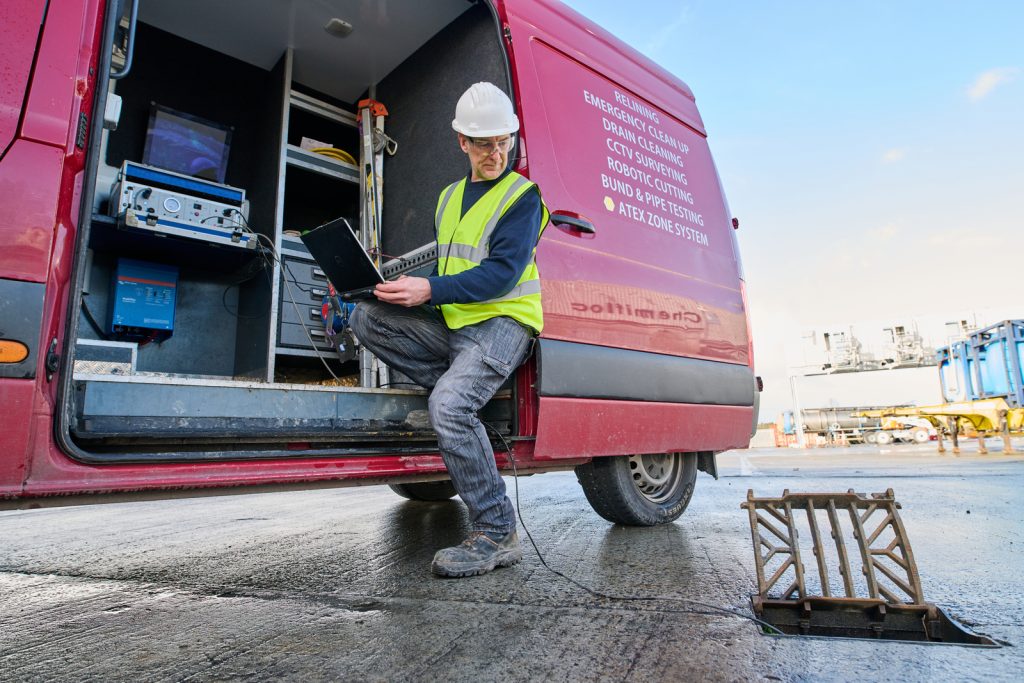Pharmaceutical manufacturing in Ireland plays a significant role in the global healthcare industry, with the country being home to a vast network of international pharmaceutical companies. As such, maintaining stringent safety, quality, and environmental standards is of utmost importance. One key aspect of these standards is ensuring the integrity of the infrastructure that supports the production processes—particularly pipes and bunds. Pipe and bund testing are crucial practices that help pharmaceutical companies in Ireland mitigate risks, comply with regulations, and ensure the highest levels of operational efficiency.
Ensuring Operational Safety and Efficiency
In the pharmaceutical industry, pipes are used to transport a variety of substances, from raw materials and chemicals to finished products and byproducts. Whether it’s for water, steam, solvents, or active pharmaceutical ingredients (APIs), these systems are integral to the production process. Pipe and bund testing is essential to detect leaks, corrosion, or other forms of wear and tear that can affect the system’s integrity. A compromised pipe can lead to the contamination of products, the loss of valuable raw materials, or even catastrophic failures that halt production altogether.
Routine pipe testing involves checking for leaks, ensuring proper pressure handling, and confirming that materials used in the pipes are suitable for the substances they carry. By identifying weak spots in the system early on, pharmaceutical companies can perform preventative maintenance, avoiding expensive repairs and downtime. Bund testing, on the other hand, involves checking containment areas (bunds) designed to prevent spills and leaks from affecting the environment. Bunds are especially important in pharmaceutical manufacturing, where hazardous materials are often stored or used.
Regulatory Compliance and Risk Mitigation
The pharmaceutical industry is heavily regulated, with stringent guidelines from authorities such as the Health Products Regulatory Authority (HPRA) in Ireland and the European Medicines Agency (EMA). These regulations require pharmaceutical companies to maintain the highest standards of safety and environmental protection. Pipe and bund testing are not only important for maintaining product quality but are also necessary for adhering to these regulatory requirements.
The testing of pipes ensures that any hazardous substances transported through them remain safely contained within the system. Leaks or damage to pipes could result in environmental contamination, posing a significant risk to both public health and the environment. The consequences of non-compliance with regulations can include costly fines, damage to a company’s reputation, or even shutdowns of production facilities. By conducting regular pipe and bund testing, pharmaceutical companies ensure they meet regulatory standards, thereby avoiding potential penalties and demonstrating their commitment to safety and environmental responsibility.
Protecting the Environment
Pharmaceutical manufacturing often involves the use of toxic or hazardous substances that can cause serious harm to the environment if released. Bunds are designed as secondary containment systems, providing a layer of protection in case of spills or leaks. Bund testing ensures these containment systems are functioning properly, with no signs of cracks, erosion, or capacity issues.
In Ireland, environmental regulations around the handling of hazardous materials are stringent, and failure to comply with containment requirements can result in severe environmental consequences, including contamination of local water supplies or soil. Regular bund testing is essential for verifying that these secondary containment systems are capable of preventing spills from reaching the environment. This testing can also detect potential weaknesses, allowing companies to make necessary repairs before a problem arises.
Cost Savings and Long-Term Sustainability
While pipe and bund testing may seem like an added expense, it can result in significant cost savings in the long run. By identifying issues before they escalate, pharmaceutical companies can avoid costly emergency repairs, production delays, and potential damage to their reputation. Regular testing also extends the lifespan of pipes and bunds, contributing to a more sustainable operation. Well-maintained infrastructure reduces the need for frequent replacements and allows companies to optimize their resources.
Additionally, addressing small issues early on through pipe and bund testing reduces the likelihood of hazardous leaks that could lead to product contamination, recalls, or even litigation. The financial impact of these incidents can far outweigh the costs associated with preventative testing and maintenance.
Conclusion
For pharmaceutical companies in Ireland, pipe and bund testing are indispensable practices for ensuring the safe and efficient operation of production facilities. From maintaining compliance with stringent regulatory standards to protecting the environment and mitigating risks, these tests provide numerous benefits. They enable companies to avoid costly repairs, prevent environmental disasters, and ensure the highest levels of product quality. In an industry where precision and reliability are paramount, routine pipe and bund testing is not just a safety measure—it is a key component of operational excellence.
A signature of CD Environmental is ‘getting it right, first time’ – professionally, skilfully, safely and efficiently. Get in touch if we can help you with this service.

Testing Can Prevent Equipment Failures Which Helps Ensure The Safety Of The People And The Environment.
